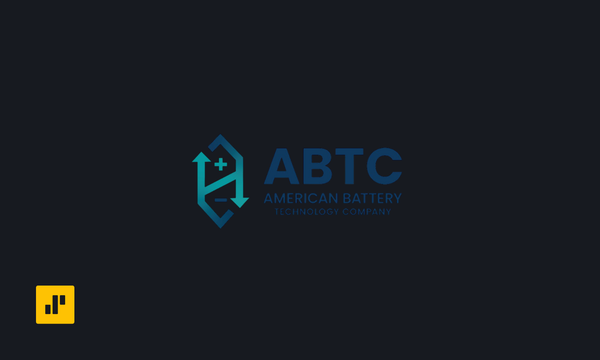Trade Idea: $TWLO


🏷️ Name: Twilio
💠 Ticker: $TWLO
📉 Direction: Long
🎯 Entry: $115.06
🎯 Target: $225 or trailing stop
🛑 Stop Loss: $104.99
⚖️ Risk / Reward: 11:1
Fundamental Analysis Report: Twilio Inc. (TWLO)
Date: November 20, 2025
Tickers: NYSE: TWLO
Recent Earnings: Q3 2025 (Released October 30, 2025)
Executive Summary
Twilio Inc. (TWLO) has executed a significant turnaround as of Q3 2025, shifting from a growth-at-all-costs model to a balanced profile of accelerating revenue and disciplined profitability. The company reported $1.30 billion in quarterly revenue (+15% year-over-year), marking a re-acceleration fueled by high-teens growth in Messaging and mid-teens growth in Voice. Crucially, Twilio achieved GAAP profitability with $37 million in net income, reversing prior losses, while aggressively returning capital to shareholders through $349.8 million in share repurchases during the quarter.
Financial Performance: Q3 2025
Twilio's Q3 2025 results demonstrate operating leverage and a return to double-digit organic growth.
Revenue & Growth
- Total Revenue: $1.30 billion, up 15% reported and 13% organically year-over-year.
- Drivers: Growth was broad-based, with Messaging revenue growing in the high teens and Voice revenue accelerating to the mid-teens, the fastest rate in over three years.
- Customer Engagement: The platform's stickiness improved, evidenced by a Dollar-Based Net Expansion Rate (DBNE) of 109%, up from 105% in the prior year.
- Customer Base: Active Customer Accounts grew to over 392,000, a significant increase from 320,000 in Q3 2024.
Profitability & Margins
- GAAP Net Income: $37.2 million ($0.23 per diluted share), a turnaround from a net loss of $(9.7) million in Q3 2024.
- Non-GAAP Operating Income: $235 million, representing a 18.0% margin, up significantly from prior periods.
- Gross Margin Pressure: Non-GAAP gross margin contracted slightly to 50.1% (down 280 bps YoY), primarily due to $20 million in pass-through carrier fees from Verizon.
- Cash Flow: The company generated $248 million in Free Cash Flow (19% margin), demonstrating robust cash conversion.
Balance Sheet & Capital Allocation
Twilio maintains a "fortress" balance sheet, allowing it to fund acquisitions and buybacks simultaneously.
- Liquidity: As of September 30, 2025, Twilio held $2.46 billion in cash, cash equivalents, and short-term marketable securities.
- Debt: The company carries approximately $992 million in long-term debt, resulting in a net cash position of roughly $1.47 billion.
- Share Repurchases: Twilio repurchased $349.8 million of Class A common stock in Q3 2025 alone. Year-to-date repurchases total $656.7 million, representing 95% of free cash flow.
- M&A Activity: On October 30, 2025, Twilio announced the acquisition of Stytch, an identity platform for AI agents, to bolster its security and developer tools.
Valuation & Peer Comparison
Twilio's valuation reflects a "value-growth" hybrid, trading at a discount to high-growth SaaS peers but a premium to legacy telecom infrastructure.
- Price-to-Sales (P/S): Trading at approximately 3.9x TTM sales. This is significantly lower than high-growth peer Klaviyo (~7.7x), which is growing faster (32% YoY), but higher than pure-play CPaaS peer Bandwidth (~0.53x).
- Forward P/E: Approximately 22.0x forward earnings, suggesting the market is beginning to price Twilio based on earnings power rather than just revenue multiples.
- EV/EBITDA: Approximately 51.7x, reflecting high expectations for continued margin expansion.
Investment Thesis & Risks
Bull Case
- Revenue Re-acceleration: The acceleration to 15% growth suggests Twilio has successfully navigated post-pandemic headwinds and is capturing new demand in AI voice and personalized messaging.
- Profitability Focus: The shift to positive GAAP net income and strong free cash flow ($248M/quarter) greatly reduces financial risk and supports the share buyback program.
- AI Optionality: The Stytch acquisition and growth in "Voice AI" customers (up nearly 60% YoY) position Twilio as a key infrastructure provider for AI agents.
Bear Case / Risks
- Gross Margin Compression: Margins contracted to roughly 50% due to carrier fees. If carriers continue to raise prices, Twilio's ability to pass these costs on without increasing churn will be tested.
- Stock-Based Compensation (SBC): Despite buybacks, SBC remains high at $158 million in Q3 (12.2% of revenue), which weighs on GAAP profitability and dilutes shareholders.
- Competition: Intense competition from lower-cost CPaaS providers and vertically integrated marketing platforms (like Klaviyo) remains a threat to pricing power.
Analyst Sentiment
- Consensus: Moderate Buy / Buy.
- Price Target: Average target of ~$139, implying upside from the ~$120 trading levels of late November 2025.
- Recent Activity: Analysts at firms including Morgan Stanley, Piper Sandler, and Wells Fargo raised price targets following the Q3 earnings beat, citing the revenue acceleration and improved guidance.
Conclusion: Twilio has successfully transitioned from a speculative growth stock to a profitable, cash-generating enterprise. With $2.46B in liquidity, a stabilizing core business growing at 15%, and a shareholder-friendly capital allocation strategy, the company presents a compelling risk/reward profile for investors willing to tolerate moderate gross margin volatility.





